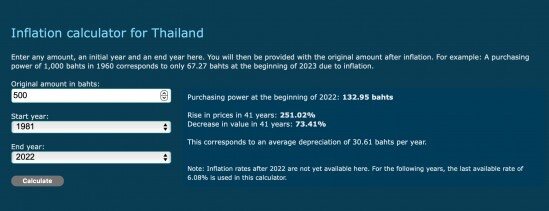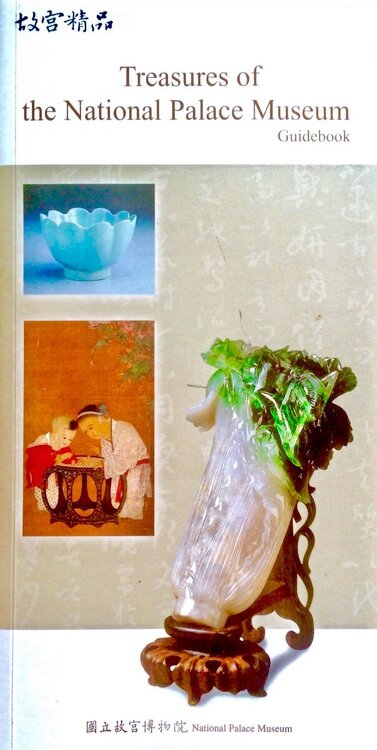
PeterRS
Members-
Posts
6,842 -
Joined
-
Last visited
-
Days Won
403
Content Type
Profiles
Forums
Events
Everything posted by PeterRS
-
I am near certain that if you are on any kind of Thai retirement visa you are not permitted to act as an unpaid volunteer for any organization. It’s a regulation which I believe is hugely counterproductive. I would happily volunteer and lend my experience to one or more charities if allowed to do so, and I’m sure many others would do likewise.
-
This used to be V Club which for a long time was in its own separate house on Soi Aree. It was the only massage place in my experience where the book of guys to choose from included a section with genuine models who appeared in magazines etc. It was a relatively small house and I believe the owner also owned Chakran. So it must have made sense to combine the two businesses in the much larger Chakran building.
-
I am presently in Taipei for a week. Normally friends and I will go to the gayish hot spring Huang Tzu on a Friday evening or occasionally a Sunday afternoon which are almost always busy times. Yesterday (Saturday) I had free time in the late afternoon before a late dinner. So I decided to go to the hot spring at 5:00 pm for a couple of hours. It was absolutely jam-packed! All the lockers were taken and the pools were full of mostly cute/handsome young guys in the late teens-40 range I guessed. I had assumed 5:00 pm would be a sort of intermediate time with the afternoon ‘shift’ getting ready to leave and those coming for the evening arriving around 7:00 pm. Not at all! Very few left and the sight of so many handsome mostly in-shape guys was as usual great. Even the steam room was packed most of the time, bodies glued almost to bodies! With the weather becoming cooler, I guess it will be like this over much of the ‘winter’. Can’t wait for my next trip in February after Chinese New Year.
-
Unless you know a Thai who has run a successful bar or massage spa and whom you’d trust with your life, I’d keep well away from Thai business ventures. Think of all the hassles - finding somewhere in a good location, rental costs, substantial renovation costs, equipment costs, staff costs, boys in blue on-going costs, endless form-filling, tax, security and so on. Sad to say, one of my best Thai friends whom I had known for over 20 years ran a small clothing business starting in Chatuchak and expanding into Bangkok’s Terminal 1. He was a bright, intelligent guy, a university graduate who travelled regularly in the region to source materials and I loved hearing about his life and the business over our regular lunches. Not having heard from him for almost 6 weeks, I went out to visit him in Chatuchak. His partner took a few moments before telling me he had died - at the age of 45. It gradually became clear he had committed suicide as his business was actually floating in a sea of red ink. Yet never once had he even hinted this to me.
-
The gym in the Pathumwan Princess hotel at the Rama 4 end of the MBK Centre is huge, well-maintained and has long been known for its clientele of handsome young in-shape Thai guys. It regularly features in gay listings although I cannot vouch for any gay happenings there. It offers daily membership. Problem would be the need for a short taxi ride to Silom/Suriwong or a walk back through MBK to get to the Siam Skytrain station. This is from one gay travel site- https://www.cruisinggays.com/bangkok/gyms/56453-pathumwan-princess-hotel-gym-olympic-club-and-pool/
-
I don’t remember seeing more than an occasional gay mag when I worked in the UK. After a few years of moving to Asia and visiting Thailand, I became aware of some appearing. In the early 1980s. Mithune was the first one. It came in a pocket book format like many of the free mags that were later to be published and available in many gay venues. But these were mostly filled largely with info about the gay scene and without full nudity. I believe they sprouted up after the Thaksin government’s Social Order campaigns at the start of the millennium. For at least a dozen years prior to that time, though, there were many full-size gay magazines with many nude photos available in not-so-discretely wrapped cellophane covers and available at street vendors at the top of Suriwong near Soi Twilight (and probably elsewhere). These included K, Hunt, His, M and others. Eventually Door appeared with not just full nudity but full-on porn pics. And then came Thaksin! Then about 15 or so years ago, the Thai Rainbow archive started collecting old gay magazines to digitize them and maintain a record. There are 646 covers on this site, but an article in the Bangkok Post a few years later suggests it could have increased to as many as 1,000. https://eap.bl.uk/project/EAP128/search?page=0 https://www.bangkokpost.com/life/arts-and-entertainment/905080/pages-of-glt-history
-
For several years Chakran has been almost exclusively Thai-for-Thai or Thai-for-Asian. When it opened more than 20 years ago it was a fabulous place for all nationalities and was the first sauna to introduce nude nights. Not much chance of action now for farang unless you are relatively young and in good shape.
-
You really are quite ridiculous if you believe a story which may or may not have been printed long ago in the long dead News of the World rag, famous for its frequent fake stories and many lost libel actions. Indeed with no link, it appears just to be one of that rag’s quite frequent fraud stories. As for your comment yesterday at 11:03 am, IF it refers to my posting no link for the front of the catalogue of the National Museum, it’s a photo of the catalogue in my possession. But as I am in Taipei now, if @scott456 does not believe it is an original photo and does not believe the dozens of sites that include photos of the cover of that catalogue, I could go again and purchase another. But since he provided zero link for his false story about the Cabbage (in which he wrongly tried to mask his ignorance by calling it Bak Choi), it’s the last thing I’m prepared to do to show up his ignorance!
-
Unfortunately most of the links Moses uses to back up his statements - if he bothers to provide any sources at all - have been in Japanese or in Russian. And in those cases, the links had nothing whatever to do with the thread topic. The one in English from a Finland site here failed to back up his comments!
-
And you have totally failed to provide any evidence that it was the jadeite Cabbage artwork which was broken! @Marc in Calif in and I have provided evidence of the three pieces which were broken. No mention of the Cabbage. Source please to prove your statement.
-
Well, you have your version. The FInland government authorities have a totally different cersion.I know who I believe.
-
But you forgot to mention that your guess is so wide of the mark it is irrelevant!
-
It seems you cannot distinguish between the Chinese Cabbage on display (and so named in the catalogue) and Bok Choi (not Bak Choi)! And if you cannot differentiate between a Chinese Cabbage and the other two artworks on display on the Museum's catalogue cover, then you clearly know even less about Chinese art - as well as sounding more than slightly stupid! Indeed, I wonder why you bothered even to comment. Oh, and yes, I am perfectly well aware it is made out of jadeite and not jade, but then some readers might not have known the difference. Now can you please tell us your source for the broken Cabbage and when - as you have claimed - it was broken and repaired? For I can find no source whatever to substantiate your claim. It was certainly reported in 2022 that three artworks in the Museum from the Ming and Qing dynasties had been broken, but these had never been put on display. https://www.channelnewsasia.com/asia/taiwan-national-palace-museum-admitted-breaking-uninsured-ming-qing-dynasty-artefacts-3035871
-
On the subject of who said what and first, you never provided any facts whatever for your comment about "90% of gays in Taiwan are bottoms." You then later backtracked and claimed it was an "opinion". Funny you did not mention that the first time you made the claim! Later you talked about one of the larger bars being packed with "the girly bottom boys." And you suggested that Taiwanese "just go home and sleep in the evenings." And on what was this opinion based? We can only assume the two visits you then informed readers you had made to Taipei? Well, readers can make their own judgements about how accurate or otherwise that opinion might be!
-
I just phoned a Taipei friend who in his first relationship (with a fellow Taiwanese) was as a bottom. Now in his marriage (also to a Taiwanese) he is the top - and enjoys it! His view is that there are probably an equal number of each. But he added that the ones more attracted to foreigners may well be more bottom than top. As anyone who goes to gay bars, saunas etc., it's clear that many Taiwanese do not wish to mix and have sex with a foreigner. Could these be mostly tops? My guess is as good as anyone's.
-
I agree completely and cannot understand why some complain about over pricing. When I first came to Bangkok and started regularly taking boys off in 1981, the expected short-time tips were 500 baht - at least that's what I paid. In those days of the baht being fixed against the US$, that was the equivalent of $20. I find charts of annual inflation rather difficult to read. but I found one which calculates what 500 baht would be worth now after inflation. The rise in prices over that period was 251.02%. By my calculation (and I am no mathematician!) that means the equivalent now would be around 1,750 baht. That today is close to US$50. Perhaps somewhat surprisingly, during the same period the inflation calculator shows a rise of 222% in the US$ buying power. What the baht figure does not include, I believe, is the general rise in economic activity in the country and the substantial increase in the number of better paid jobs. As has been suggested in other threads, I assume this must have had some effect resulting in the reduced availability of Thai boys for the gogo bars in particular and consequently off prices and tips. My view therefore is that all factors considered and over the much longer term, the figures illustrate that prices charged by bars for offs and the requested tips by the boys have actually gone down.
-
FInland is not really cold in the southern parts in the summer. But its really freezing north of the Arctic Circle. I think I have mentioned before that I visited the Soviet Union three times and since then Russia twice. Apart from the weather in what was then Leningrad in late December when milder air had turned the snow into grey slush, I always enjoyed my visits. My first to Red Square with light snow on a February morning was stunning. You could feel the history of that magnificent space. So much to see in Moscow, and I even got to a concert in the famous Tchaikovsy Hall at the Moscow Conservatory. Cocktails with friends in the circular bar atop the Swissotel afterwards were perfect, the more so with so many cute waiters. But I was told by ours that the amazing boys behind the bar who seemed masters at the art of making cocktails were mostly Czech. St. Petersburg was even more stunning when I saw it in beautiful August weather. I wish I had had more than five nights. Although I am a committed Asian lover, some of the University students were extremely attractive. Were the political situation not so difficult, I would certainly return.
-
Another post by Moses which does not reflect all the facts. And if he had actually read the link he provided he would surely have noted this - "Previously, Russian authorities have not allowed travel from Russia to Finnish border crossing points, if the passenger has not had the required travel documents. In recent months, the actions of the Russian authorities have changed, at least on the border with Southeastern Finland. Unlike before, they have allowed travel despite lack of documents." So, as for the suggestion now that "Russian guards do not interfere", certainly some Russians officials are definitely interfering, for as the above from Moses' own link makes clear, the majority of immigrants which have recently flowed through the four now-closed border crossings had no documents! You cannot leave a country without proper documentation! As stated in the Financial times on November 14 - “The number has grown significantly in a short time,” said Mari Rantanen, Finland’s interior minister. “Russian authorities have changed the way they work to allow travel to Finland despite a lack of documents, which is illegal entry.” https://www.ft.com/content/f25a852d-5074-445b-b088-7989a892c7ff There is also no denying that since near the start of the war in Ukraine, many young Russian men have been using a variety of countries to escape the draft of men into the Soviet army, including Finland. Numbers may have dropped but last year over a 2 weeks period 59,975 Russians crossed into Finland and 23,859 failed to return. No doubt some had visas for Finland and some moved on to other countries. But in such a short space of time it marked a major outflow of Russian citizens. From Sept. 21 to Oct. 5, 59,975 Russians arrived in Finland through the four checkpoints, with many leaving to other European countries, while 36,116 Russians went home, Finnish border guard authority data showed on Oct. 5. https://www.reuters.com/world/europe/where-have-russians-been-fleeing-since-mobilisation-began-2022-10-06/ Since the start of the illegal Ukraine War, Forbes estimates that between 600,000 and 1 million citizens fled Russia in 2022 alone. These figures are backed up by popular Russian-language media The Bell and RTVi. https://www.bbc.com/news/world-europe-65790759
-
And how many times do posters here have to write to remind other posters that they do not have read anything that is posted nor agree with points in such posts? If they are bored by one poster's post, move on! And of course @Department_Of_Agriculture failed to note my statement added, "No doubt part of the reason . . ."
-
I have been to five of the venues mentioned. The list seems pretty much up to date.
-
Worth a visit every time. There was a problem for a few years prior to covid but oinly because there were so many tour buses packed with Chinese from the mainland seemingly arriving almost every minute. Compared to a decade or more earlier, seeing some of the most popular exhibits - like the exquisite tiny white and green jade cabbage with the two tiny insects on it (as on the cover of the Museum's catalogue) - meant waiting or just barging to the front. Now it is far easier.
-
Yes, I did realise this. Like Napoleon, one of Hitler's armies got very close to Moscow. Napoleon actually got there but found the inhabitants gone and much of the city on fire. With Remembrance Sunday just a week ago, we should never forget that the Soviets lost more than 25 million people in WWII. They did indeed pay a terrible price.
-
Apologies - I missed the addition of the earlier half star. The chicken and cashew nuts must be doing a roaring trade.
-
It's the next big blockbuster from one of the great directors who has not yet won an Oscar. Ridley Scott's 2 hrs 38 minute Napoleon opened in Paris this week to decidedly mixed reviews. The French, perhaps not surprisingly, did not like it much. Le Figaro wrote it should be renamed "Barbie and Ken under the Empire". CG France said there was something "deeply clumsy, unnatural and unintentionally funny" in seeing French soldiers from 1793 shouting "Vive la France" with American acents. American critics have been equally mixed. The entertainment bible Variety claims it is "turgid grime-encrusted spectacle," although adding that it is an undeniably impressive technical achievement. Whoever writes the Roger Ebert column nowadays gives it two stars, saying "it is a deeply shallow screenplay, one that hits major events in the life of its subject with too little passion or purpose." Only the UK critics seem to have taken the film to their hearts - because they beat Napoleon at Waterloo perhaps - the Battle not the London train station? The Guardian calls it "an outrageously enjoyable cavalry charge of a spectacle," while Rupert Murdoch's The Times says it's a"spectacular historical epic." Should be coming to Thailand soon in iMax Theatres and others. https://www.bbc.com/news/entertainment-arts-67419876
-
Half star added to 7 becomes 8? What did I miss?






